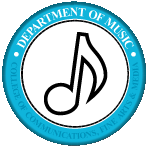-

Becoming a Music Teacher: Student to Practitioner
Donald L. Hamann and Shelly C. Cooper
Co-authored by Shelly Cooper, UNO faculty member
New music teachers often struggle to find a way to connect the content learned in college classes with the content that will be taught in the classroom, since the nature of their work demands a high level of both musical and educational ability, while also the skills to switch from tuning an orchestra to leading a marching band or practicing voice parts with a chorus. Becoming a Music Teacher: Student to Practitioner focuses on making the connections between the college music classroom and public school music classroom transparent, visible, and relevant. Award-winning music educators Donald L. Hamann and Shelly Cooper have created a versatile text for music teacher education, and one that will provide a significant resource for music education students across the US.
Based around an innovative organization and approach, Becoming a Music Teacher is made up of 40 short modules that focus on increasing a teacher's comfort and confidence level when instructing or leading groups. Each module is broken down into four individual components that demonstrate real life transfers from classes to classroom through the components of Personal Awareness, Personal Musicianship, Pre-Conducting, and Professional Knowledge. The Personal Awareness component gives a lesson on good teaching skills by focusing on body awareness, body language, and communication styles rather than abstract theories of education. Personal Musicianship provides a guided learning approach to teaching sight-singing and opportunities to create both vocal and instrumental accompaniments with the songs that are included in the modules. Pre-conducting discusses ways in which certain gestures or concepts could be used in rehearsing a school ensemble through the development of hand/arm independence, posture, and gestures. Professional knowledge links the module to the real world and places it in the context of the workplace, offering advice on how to work with other teachers and administrators, and includes characteristics of successful teachers, the role of schools in contemporary society, and diverse learners. When taken together, these components help the student develop a genuinely rounded skill set for the classroom.
The lessons are activity-based and interactive, allowing readers to experiment, communicate, and provide feedback. The modules are also flexible and have been designed to be easily integrated into a music education classroom and applied to specific age groups, includingadult learners, a demographic many music education students encounter but one rarely discussed in music education classrooms. Each module stands alone, allowing instructors to customize their lesson plans by selecting or highlighting the modules most relevant to their class. This text also includes exercises that promote reflection on professionalism, collegiality, and legal factors that affect both students and teachers, not found in most education texts. -

Music and Media Infused Lives: Music Education in a Digital Age
Susan O'Neill, Laura Dunbar, and Shelly C. Cooper
Editor: Susan O'Neill
Chapter, Balancing Convenience and Ethics in Higher Education: Refining and Reconfiguring the Music Classroom Technology Culture, co-authored by Shelly Cooper, UNO faculty member
This is an essential book for anyone wishing to explore how music is mobilized and utilized through digital media, creative collaborations, and increasingly blurred boundaries in music education, research, and practice.
-

Learning from Young Children: Research in Early Childhood Music
Suzanne L. Burton, Cynthia Crump Taggart, and Shelly C. Cooper
Editors: Suzanne L. Burton and Cynthia Crump Taggart
Chapter, The Importance of Parents in Early Childhood Music Program Evaluation, co-authored by Shelly Cooper, UNO faculty member.
In early childhood, the most important period of learning and human development, young children often achieve developmental milestones in a short time. Learning from Young Children : Research in Early Childhood Music presents research on the importance of fostering musical growth during this period. These studies discuss: applying brain research to young children's musical growth; music in the home and child-care contexts; musical characteristics of the young child; language acquisition as a lens on music learning; music as a foundation for communication; parental conceptions of the role of music in early childhood; music as a pathway for building community; using music to elicit vocalizations in children with special needs. With research designs ranging from statistical, mixed methods, survey, content analysis, and case study, to philosophical inquiry, this book will help practitioners base their practice in research and offers a wide range of information for scholars and researchers studying early childhood music learning and development.
Printing is not supported at the primary Gallery Thumbnail page. Please first navigate to a specific Image before printing.

